If ever you need a reminder about the powerful, measurable differences a teacher makes in this world, have a little chat to Claire from @missmurraysclassroom. Claire is someone who knows that inclusion empowers, that learning inspires and that celebrated diversity creates self-confidence and connection. These incredible effects, in turn, form the cornerstone of a better future as children become teenagers, and teenagers become adults. It’s a future that is better for individual students, their families, their communities and the wider world.
It’s not a lofty ideal. In fact, when we had a little chat with Claire it was clear that this notion, that the seemingly ‘small’ impacts she has as a teacher, ripple out in ways that are significant and important. While the day-to-day ‘grind’ of teaching certainly isn’t without its challenges, for Claire, returning to this bigger vision reminds her why it’s worthwhile.
Take 5.
Read this little reminder of just how important teachers are, with Claire Murray.
TS: Can you tell us a little about yourself?
CM: I have grown up all around Australia – I was born in Cairns, Queensland, moved to Broome in Western Australia for primary school and then travelled around Australia with my family for a year, completing Year 7 via Distance Education. After high school I went to the University of Queensland and 2018 will be my fourth year of teaching.
TS: What is your current role?
CM: I was lucky enough to secure a job at a beautiful school in Brisbane upon graduation, and received permanency at the end of my first year of teaching. I have stayed at this amazingly supportive school since then, and have been able to learn so much about curriculum and pedagogy during this time.
Although my school is in ‘the suburbs’, we are an incredibly close-knit small school of 300, with a complex demographic of students – children with diverse learning needs, from over 50 different countries. I have taught Year 1 for the past 3 years, and am again teaching Year 1 in 2018. I love my “little mates”!
TS: Why did you become a teacher?
CM: I became a teacher because I wanted to make a difference in the lives of all my little mates. I know that for some of my mates, our classroom might be the only place where they are safe, feel loves or are told that they are amazing. It might be the place where they have their first smile for the day or are asked how they are feeling.
I want to support my little mates to become citizens of the world, acknowledging diversity and difference in their peers, and taking that love and acceptance with them for their lives.
Teaching is such a massive job, but it’s also such an important one. Rita Pierson’s TEDTalk “Every Kid Needs a Champion” gets me every time – I want to be that champion for my little mates.
TS: Did you always plan to be a teacher?
CM: I originally studied Bachelor of Hotel and Event Management when I went to university, with dreams of managing a hotel or planning exciting events. I completed the three-year degree and realised that it wasn’t for me.
I went straight back to university and completed another four years of study – a Bachelor of Education (Primary). With hotel and event management, I knew it would be a profession where people would always be asking so much of me, complaining and being pedantic about the little things – don’t get me wrong, teaching takes a lot of my energy, but it’s for a reason, it’s for a child and their safety and wellbeing – that’s why I go to work every day.
TS: What makes your teacher heart sing?
CM: My heart absolutely sings when I have those teeny moments of success.
When a little mate can’t read at the start of the year, and by the end of the year, they are reading to their peers with confidence.
When a little mate finally clicks with a maths strategy.
When one of my little mates with ASD sits comfortably and calmly in a classroom for half an hour.
When you see new friends playing happily in the playground. I work in an extremely diverse school, so the moments are so different for each and every little mate.
I love the quote by George Evans – ‘every student can learn, just not on the same day or in the same way.’
TS: What do you find most challenging about working as a teacher?
CM: By the nature of my little mates – I find the age of Year 1 kids to be the most challenging. It’s what I love the most about them, and it’s what I struggle the most with. They have this amazing innocence, ability to bounce-back, humour and love for you no matter what.
It’s also tricky to work with little mates who have a very short attention span, who are so young, and take fifteen minutes to glue in a page (and it would often be upside down, and off the page a bit) – it’s a huge job to teach kids how to ‘do’ school, and probably feeds my coffee habit.
TS: Is working in education different to how you imagined it would be when you were a pre-service teacher?
CM: I knew teaching would be a big job, but I don’t think I truly realised how all-consuming it can be at times. I don’t think it’s something people can really understand until you know a teacher or live with one – I’m lucky to live with two other teachers, so we all recognise those ‘back to school jitters’, the ‘report writing junk food binges’ and ‘end of year teacher tired’.
TS: Tell us about the “best” moment you’ve had as a teacher.
CM: Last year I taught a lovely little mate who was often described as ‘low’. They had excellent oral language skills and descriptive language, but really struggled with reading and writing. When it came to the assessment of our retell unit, the task was for them to write a sequenced retell of a cultural story. This task was not designed for my little mate, and I dreaded the moment when I would have to ask them to ‘write’ a retell, knowing the stress and pressure it would place on them.
I modified the task for them – they lay on a cushion on the carpet in our classroom and orally retold me the story and I scribed it onto our interactive whiteboard. We printed and cut out the retell, and my little mate sequenced the text and drew pictures to match. We took it to other teachers and showed them, and my little mate was absolutely beaming. There wasn’t much point in forcing my mate to ‘write’ extended texts when they had pre-writing skills, simply for assessment’s sake. That day, the pride on my little mate’s face was their success, and showed their amazing abilities, not their struggles.

TS: Name three characteristics or skills that you hope every one of your students will have when they walk out of your classroom for the last time.
CM:
- Compassion – I want them to have acceptance of diversity and difference.
- Kindness – I want them to be kind to themselves, others and their environment.
- Confidence – I want them to know that they are amazing little people, who are good at something (even though it may be different to their peers).
TS: If you could change three things about the expectations that are placed on teachers, carers and students in the current climate of education, what would they be?
CM:
- Let them be little – I think it’s important to remember that we are working with little people, and that they deserve time to be little – play, imagine and rest.
- Trust us – I think people need to have more faith and trust in teachers. There’s an endless list of skills and knowledge that teachers are becoming required to teach our little mates these days. We do our best every day and we’re doing it for all the right reasons. It’s such a tough job and I’d like for more people to see it as more than babysitting, ABCs and great holidays – we’re not in it for the money that’s for sure!
- Support – Little mates need to feel loved and supported at home and at school – a hug, 20mins of reading one-on-one or playing a game together. Teachers need to feel appreciated and supported in their roles – a smile, a thank you, and kind note go a long way.

TS: Where do you hope your career in education will take you?
CM: I love being a classroom teacher, and don’t see myself leaving the classroom too soon. But working in my current school, I see phenomenal examples of inclusion for little mates with special needs.
I would love to work in a role of inclusion in the future – supporting teachers to understand ASD and to help them support their little mates to feel welcome, safe and happy in the classroom. I think it’s really important to know that inclusion means different things for different kids – it might be just eating in the same area as peers at lunchtime, it might be working in the classroom with peers with an aide to support, it might be working full-time in the classroom with modified assessment tasks.
Every child is gifted at different things and learns in a different way, and more often than not, the strategies you can implement to support students with special needs, support all students.
Claire’s Top 3 Teach Starter Resources
I asked Claire what her current three favourites are (because there are so many resources to explore!):
1. I Spy Oral Language (Objects in a Jar)
Claire says, “This resource is so simple, but it is brilliant for encouraging the development of oral language and productive language skills”.
2. Social Stories Resource Pack
Claire says, “This resource is a great starting point for supporting children with ASD to understand their classroom and social interactions at school”.
3. Back to School Essentials Resource Pack (Lower Grades)
Claire says, “This pack has a great range of resources, perfect for a teacher changing year levels or starting their teaching career”.
Here are a small sample of the resources included in this Back to School Essentials Resource Pack.
[resource:5103][resource:8399][resource:9926][resource:3369]
Huge thanks to Claire for sharing her thoughts and experiences with us for this Teach Starter Spotlight.
You can connect with Claire via her Instagram account @missmurraysclassroom

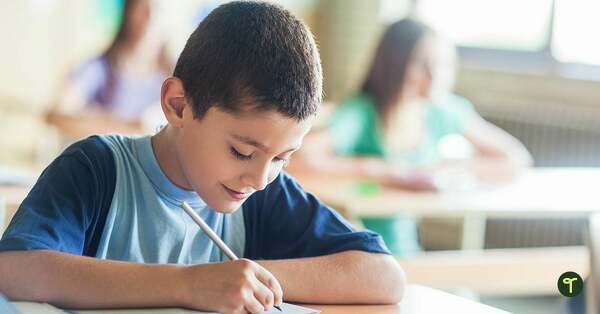
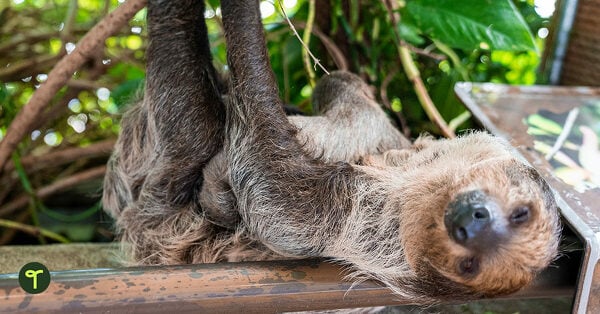
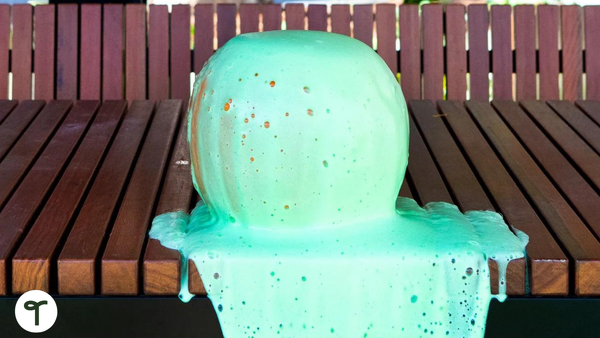
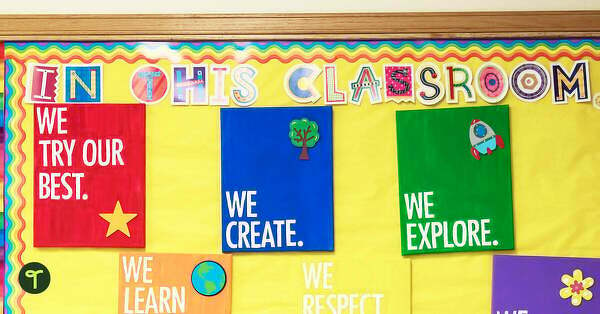
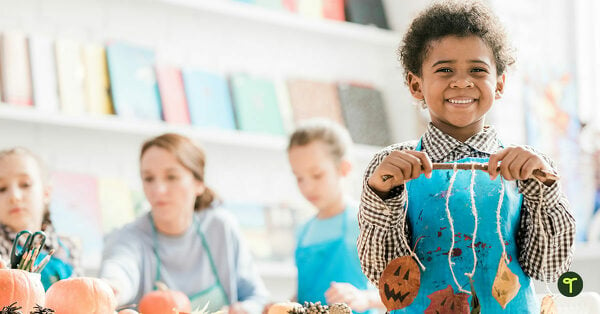

Comments